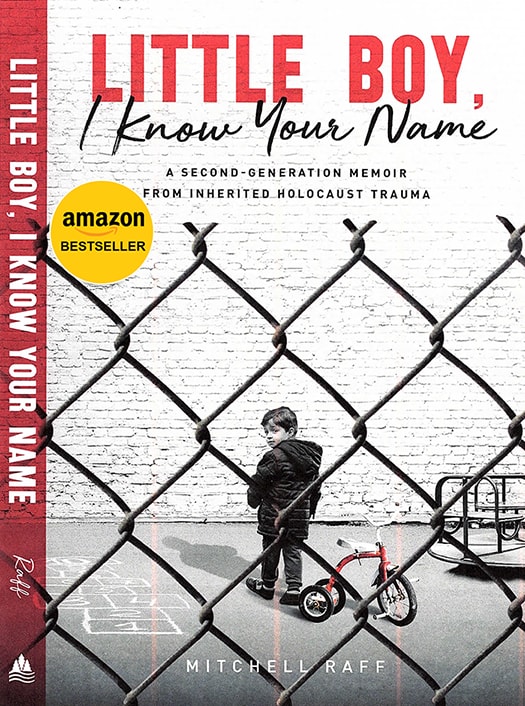Book Reviews
Overviews and Critiques
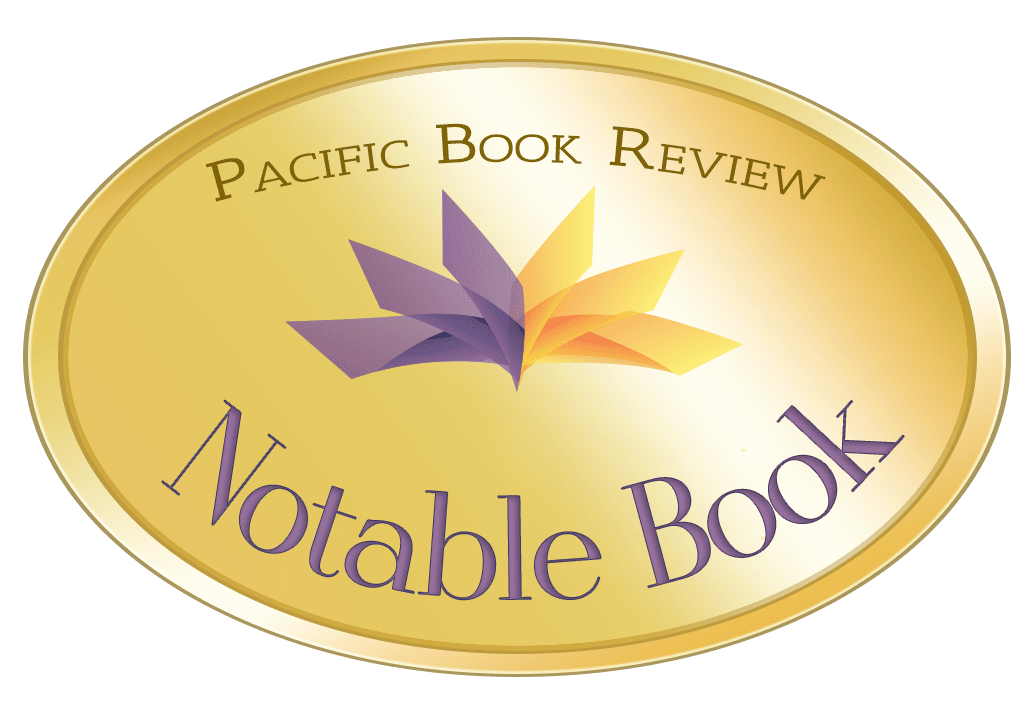
LITTLE BOY, I KNOW YOUR NAME
A SECOND-GENERATION MEMOIR FROM
INHERITED HOLOCAUST TRAUMA
by Mitchell Raff
"This is one of the most compelling memoirs I have read in a long time… Little Boy is tragic, heartbreaking, captivating, and, in the end, quietly triumphant."
This is one of the most compelling memoirs I have read in a long time; it is heartbreaking, educational, and fascinating. Author Mitchell Raff is a great storyteller. His writing is acutely articulate and his willingness to delve into his and his family’s trauma gives this memoir a raw authenticity. As the subtitle suggests, this book explains just how systemic trauma is passed on from one generation to another. It is often unintentional, subconscious, and manifests in different ways in each subsequent generation. How is a familial trauma or a broader social ill (systemic racism or anti-Semitism) perpetuated across generations? Perhaps the best way to understand it, and it’s all too real but sometimes cloaked manifestations, is to learn of it through the lens of a profoundly personal memoir. Little Boy, I Know Your Name: A Second-Generation Memoir From Inherited Holocaust Trauma is this type of education, wrapped in a spellbinding story.
Mitchell was born into trauma. His father, mother, aunt, and uncle were all Holocaust survivors. His father was broken. His mother was full of rage. His aunt and uncle were saint-like by comparison. But what they all shared was a quiet suppression of the trauma they endured. While his father was no more than a shadowy figure in his life, his mother was all too present. First abandoning him to an orphanage and then reclaiming him at age four, she subjected him to years of abuse. Mitchell understood she was acting out of her past trauma. This was something he understood but could not fully forgive. After kidnapping him and his sister to Israel, Mitchell’s only hope was to find a way to live with his Uncle Issa and Aunt Sally back in California. Issa was his “messiah” in so many ways and instrumental in his having any chance of a hopeful life.
As an adult, Mitchell was determined to not repeat the mistakes of his parents. He did what he could to avoid his traumatic inheritance and certainly did not want to pass it on to his son. Despite those efforts, he would embark on a series of extreme self-destructive behaviors, essentially living the life of a stereotypical rock star: affairs, drugs, prostitutes, etc. As he inherited family trauma, he also inherited the family art of suppression. He led a double life. He hid the rock star side of his life from his other persona: a decent father and husband who ran a successful business. Through therapy and honest introspection, he realized that his vices were trying to fill the void left by an absent father and an abusive mother. Thus, the trauma he inherited was simply disguised as his own, new vices. One of the things this book brilliantly illustrates is how, forgive the cliché, “hurt people hurt people.” Whether it is systemic anti-Semitism or trauma, familial or social, this book shows how those perpetuating the “hurt” across generations are often in denial about it or are not even aware how they are doing it.
Little Boy is tragic, heartbreaking, captivating, and, in the end, quietly triumphant. Yes, this story tells a tale of a vicious cycle of psychological damage. There is a bleakness about it but there is also hope of redemption. Does Mitchell become the man he always wanted to be, thus breaking the cycle? If you are like me, you will read this book all in one sitting.
Pub Date: Nov. 3, 2023
ISBN: 9781632997630
Page Count: 236
Publisher: River Grove Books
Review Posted Online: Mar. 27, 2024
Review Program: Pacific Book Review by Jason Lulos (awarded notable book gold seal)
Categories:
Biographies & Memoirs
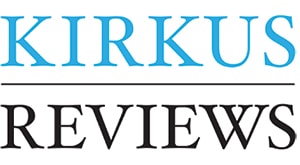
LITTLE BOY, I KNOW YOUR NAME
A SECOND-GENERATION MEMOIR FROM
INHERITED HOLOCAUST TRAUMA
by Mitchell Raff
"An absorbing remembrance of a difficult psychological legacy."
The son of Holocaust survivors explores generational trauma in this memoir.
“When speaking of my childhood,” writes debut author and charity director Raff, “I learned to be careful…knowing that often it would lead to more uncomfortable questions.” As the son of Holocaust survivors, the author’s story may not be as harrowing as his elders’, but it was shaped by the same traumatic events. His mother, for instance, watched his grandmother die during the war, and witnessed Nazis invading her home in Poland; according to Raff, her later life was made up of actions that were “reckless and selfish,” as she lived a nomadic life in Canada, the United States, and Israel. One of the central traumas of the author’s life was when his divorced mother kidnapped him in 1969 and took him to Israel to live with her; eventually, his father reclaimed him. As a child, Raff was frequently told that the “worst thing” he could do to his family was marry someone who wasn’t Jewish—a sentiment that lingered in his mind well into adulthood, when he married a woman outside the faith. Although he was a successful California businessman, the author was, in the words of his therapist, “a well-dressed poser” for much of his adult life, as he masked his emotional pain behind a façade of confidence. In addition to exploring the author’s inherited suffering, the book also surveys his role as “the connective tissue between my son, Joshua, and the trauma of my parents’ generation.” Overall, this is a harrowing, empathetic, and profoundly personal work that’s unafraid to explore Raff’s family’s “fumbling” response to mental anguish; he effectively calls it a cycle of pain that “lacerates those we choose to love.” Informed by years of personal therapy, the book is intended to give hope to others who may feel hopeless. Some may find the book’s nuanced portrayal of imperfect survivors to be uncomfortable at times, but its authentic narrative from a second-generation survivor is a thoughtful addition to Holocaust literature.
An absorbing remembrance of a difficult psychological legacy.
Pub Date: Nov. 3, 2023
ISBN: 9781632997630
Page Count: 236
Publisher: River Grove Books
Review Posted Online: Jan. 5, 2024
Review Program: Kirkus Indie
Categories:
Biography & Memoir | Current Events & Social Issues | Psychology | Ethnicity & Race
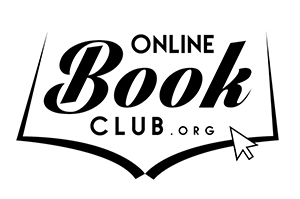
LITTLE BOY, I KNOW YOUR NAME
A SECOND-GENERATION MEMOIR FROM
INHERITED HOLOCAUST TRAUMA
by Mitchell Raff
"It takes courage and self-awareness to prevent the spread.
His story is a lesson, a guide, and a warning."

Pedaling his red bicycle in the playground of his Jewish community association preschool, a woman on the other side of the fence said words that would change his life forever: "Little boy, I know your name." She asked if he wanted to stay with his sister. Those were enough words to cast a spell on a four-year-old who just found out he had a sibling. Mitchell left the safety net of Uncle Issa and Sally to stay with his mother, Giza, the woman who knew his name.
Little Boy, I Know Your Name by Mitchell Raff is the author's life account of growing up as a child of Holocaust survivors. It is the story of a child raised by an abusive mother and a broken father. It is the story of a child who inherited Holocaust trauma.
There are lots of positive aspects to this book. Mitchell's story is soulful, heart-wrenching, and intriguing. No wonder anyone he told his story to would encourage him to write a book. But even more captivating are his story-telling techniques. He delivered his story beautifully. From the prologue, he had me intrigued and invested in his story. He could seamlessly switch from a one-time frame to another. He started with the story of his mother approaching him in the playground, and soon after, readers were learning of some of the Holocaust experiences his family had. The seamless storytelling was a pleasurable reading experience for me. The book had just one error. It was professionally edited.
Mitchell wrote down his story for people who are in pain. I find this book a valuable tool for people struggling with trauma, pain, or a repetitive cycle of abuse. It majorly highlights the unhealthy coping mechanisms survivors adopt to try to outlive their pain. For Moshe, Sally, and Giza, they chose not to speak of their Holocaust experiences. For Mitchell, he started to dissociate at a young age, and as he grew older, he learned to compartmentalize his different personalities. Maybe once we learn to familiarize ourselves with these unhealthy patterns, we will know when to seek help and try to heal. Traumas could have a long-lasting effect, not just on our lives but also on the next generation. It takes courage and self-awareness to prevent the spread. His story is a lesson, a guide, and a warning.
There is nothing negative about this book, so I rate it 5 out of 5 stars. It was a pleasurable read—entertaining, educating, sorrowful, yet captivating. I recommend this book to survivors of abuse and people dealing with inherited traumas.
Pub Date: Nov. 3, 2023
ISBN: 9781632997630
Page Count: 236
Publisher: River Grove Books
Review Posted Online: Jan. 13, 2024
Review Program: Online Book Club

LITTLE BOY, I KNOW YOUR NAME
A SECOND-GENERATION MEMOIR FROM
INHERITED HOLOCAUST TRAUMA
by Mitchell Raff
"Heartfelt and hopeful—
a touching coming of age story about a boy born to Holocaust survivors."
Mitchell Raff’s Little Boy, I Know Your Name takes its title from a memorable scene in the memoir’s first chapter that will stick with me for years. His mother said those words to him from the other side of a fence at pre-school, introducing herself to her son and starting him on a journey that would alter the course of his life. Raff spends some time on how the Holocaust survivors in his family believed suppression of their horrific memories would insulate future generations from what they had survived. The choice is understandable, and things might have worked out differently for Raff if his mother had not come calling that day in the playground when he was four years old.
“And I can draw a direct line between that day and the day my inheritance came calling for me. “Little boy, I know your name,” she said. Her accented English was soft. I stopped pedaling my beat-up little red tricycle.”
Culture introduces children to an idealized version of the family: parents who love unconditionally and atomic family units that make dreams seem more accessible, and perhaps biology instills in us a need to know our parents. I don’t know, but I can relate to the feeling Raff eloquently describes.
When his mother said she wanted him to come live with her and his little sister, it seemed like that promised happiness had arrived, calling Raff toward a better life. He left the home of his loving aunt and uncle, trading it for a chaotic existence with his mother. He would blame himself for not knowing what would happen. He would consider whether his aunt and uncle might have done a better job at warning him, and he would wonder why things were the way they were. He would ask himself what he’d done to deserve abuse. He would try to become a better son and seek love from a mother incapable of understanding his desires. He would blame himself for not protecting his sister and hold himself accountable for hurting people who tried to help him. It’s easy to understand how this self-centered approach developed as a coping mechanism. Blaming himself gave Raff a sense of control over circumstances outside of his power, while scrutiny of details made it seem like if he had changed one choice, everything would have been different. At his core, Raff was always hoping for something better.
This memoir is hard to put down. We are given an immersive look inside the aftermath of Holocaust trauma, but it also is so much more than that. Raff’s memoir is a treasure. It tells a wholehearted story about a boy who will forever be a child born to Holocaust survivors but also the story of a boy growing into a man surviving his own trauma. Raff could have continued distracting himself from his pain, but he shares a valuable lesson in this story. And in the process, he’s ending a broken cycle for himself and those he loves. Mitchell Raff’s Little Boy, I Know Your Name would be great for anyone looking to learn about the aftermath of the Holocaust. It’s a tale of companionship for those who suffer as they continue to ruminate on and distract themselves from the traumatic parts of childhood and life.
“We…never know where healing, love, and a desire to be better will lead us.”
Pub Date: Nov. 3, 2023
ISBN: 9781632997630
Page Count: 236
Publisher: River Grove Books
Review Posted Online: Mar. 17, 2024
Review Program: Independent Book Review by Susan Morris
Categories:
Nonfiction / Memoir

LITTLE BOY, I KNOW YOUR NAME
A SECOND-GENERATION MEMOIR FROM
INHERITED HOLOCAUST TRAUMA
by Mitchell Raff
"Rejecting a family tradition of silence to catalog inherited and individual wounds,
Little Boy, I Know Your Name is a powerful memoir."
Clarion Rating

Mitchell Raff’s forthright memoir Little Boy, I Know Your Name centers on his relationships with the four Holocaust survivors who raised him, showing how their trauma impacted his life.
Four-year-old Raff didn’t remember his mother. He lived in Los Angeles with his Uncle Issa and Aunt Sally. His father, nearly catatonic after surviving Dachau, lived nearby. One day, his mother, who’d also survived the Nazi regime, showed up at his preschool, wanting him to come live with her and his little sister. Fascinated by news that he had a sister, Raff moved in with his violent, traumatized mother, who ended up kidnapping him during a pending custody case and taking him to Israel.
The chaos that followed is mirrored in an impressive literary strategy: the book’s narrative structure is a chronology interrupted by frequent flashbacks and flash-forwards. This structure also echoes the book’s central theme about Holocaust trauma crossing generational boundaries. Time shifts are signaled by paragraph breaks, insertion of dates, and other transitional devices that make it easy to follow the story, even when the shifts are rapid and profound.
The quick shifts in time also contribute to the book’s urgent pace, creating active suspense; when extraordinary future outcomes are revealed in a flash-forward, it generates a desire to know how in the world those outcomes could have occurred. Early in the book, it’s revealed that Raff’s cherished son died as a young man, but the particulars of that tragedy are withheld until the final chapter. In a similar pattern, Raff questioned how his mother’s silence and rage continued even after her death to create heartbreak in his sister’s life. When that question is answered many pages later, it’s satisfying.
The flash-forwards also enhance the memoir’s reflective moments. When conversations with a therapist Raff consulted as a sober, older man are interspersed with scenes from the active addictions of his youth, these conversations open up ideas about motivations for Raff’s self-destructive behavior as he continued his family’s tradition of silence, compartmentalizing his different identities. Returning to the US as a teenager, he once again became Issa and Sally’s beloved boy, but another part of him was still his mother’s whipping post. As an adult, he was a good husband and a loving father, as well as a sex addict and drug addict; the latter identities he kept secret.
Eschewing research on trauma impact in general, epigenetics, or the specifics of Holocaust trauma, the book relies on personal experiences as its evidence. Further, the dramatic contrasts between Raff’s mother’s violence and his father’s extreme passivity suggest that each survivor’s way of coping is unique, and each survivor’s descendants will therefore experience different impacts. This family’s common coping mechanism was silence; elegant prose is devoted to their belief that silence could “cauterize their wounds,” even while breaking from tradition to disclose Raff’s own traumas and transgressions.
Little Boy, I Know Your Name is a memoir about tragedy, lasting trauma, and recovery that is rooted in a family legacy of surviving the Holocaust.
Pub Date: Nov. 3, 2023
ISBN: 9781632997630
Page Count: 236
Publisher: River Grove Books
Review Posted Online: Mar. 27, 2024
Clarion Rating: 5 out of 5
Review Program: Foreword Review by Michele Sharpe
Categories:
Autobiography & Memoir / Self-Help

LITTLE BOY, I KNOW YOUR NAME
A SECOND-GENERATION MEMOIR FROM
INHERITED HOLOCAUST TRAUMA
by Mitchell Raff
"At once intensely personal and historically significant."

Gripping autobiographical reflections from a child of Holocaust survivors, Little Boy, I Know Your Name by Mitchell Raff is a visceral, heartrending, and timely work of history and memoir.
Growing up in a non-traditional Jewish family permanently scarred by concentration camps and gulags, young Mitchell also had to navigate split custody with his unpredictably violent mother, acting as guardian to his half-sister while having to endure familial abuse. When he is uprooted and moved to Israel, he doesn’t escape his mistreatment, which is compounded by a life of isolation and uncertainty about the future, without his beloved family members there to watch over him.
Finding allies and unexpected kindness where he can, Mitchell details the unbelievable battles of his young life, both in Israel and America, from misunderstood trauma responses and sex addiction to broken cycles of intimate abuse and long-form depression. Infidelity, marriage, the burden of childcare, and countless other emotional ills play out on these pages and in his life, making Raff’s story a testament of resilience and repentance – too often for the sins of others.
As the child of survivors, and a survivor of violence in so many forms as a child, Raff has alchemized his pain and the legacy of tragedy into profoundly accessible wisdom about healing, purpose, and the essential autonomy of every life. Displaying a self-awareness that can only come through intense introspection and a lifetime of reflective analysis, he gives voice to a struggle that millions of people still battle with to this day, for a story that is at once intensely personal and historically significant.
There has been a recent awakening of awareness to trauma and healing therapies, making some of the stories and anecdotes from this challenging narrative even harder to bear. The psychological toll the author endured is unfathomable, yet he reflects with empathy and attempts to understand the unfair treatment he suffered for so many years, sometimes from the very sources he had turned to for love. One of the most powerful lines still echoes long after reading, summarizing much of the existential struggle this book attempts to unravel – the sinister intertwining of violence and victimhood, revenge and pacifism, moving forward and being held back by the past: “If I and many others like me are children of the Holocaust, the Holocaust is a weirdly absent parent. We feel its presence but never enough to truly know it.”
The language is masterfully woven throughout, and there is a rawness of truth and tragedy percolating beneath every line of the narrative. The vocabulary use is lyrical without feeling stilted, and while much of the dialogue is short and straightforward, it captures the intensity of meaning that can be buried within simple words and exchanges. Given the public’s renewed focus on Jewish history, this book offers a powerful reminder of the unparalleled horrors of the Holocaust, and the steady funnel of intergenerational trauma it has inflicted on the world. This is not intended to be an easy read, but it is an essential one, regardless of ethnicity, religion, or age.
Pub Date: Nov. 3, 2023
ISBN: 9781632997630
Page Count: 236
Publisher: River Grove Books
Review Posted Online: Jan. 8, 2024
Review Program: Self Publishing Review
Categories:
Book Reviews, Lead Story
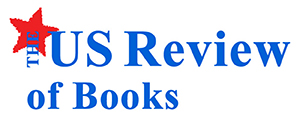
LITTLE BOY, I KNOW YOUR NAME
A SECOND-GENERATION MEMOIR FROM
INHERITED HOLOCAUST TRAUMA
by Mitchell Raff
"If I and many others like me are children of the Holocaust, the Holocaust is a weirdly absent parent. We feel its presence but never enough to truly know it."
After marrying in Israel, the author’s parents moved to Los Angeles shortly before he was born. His father was a survivor of the concentration camp known as Dachau, and his mother survived by being hidden in a barn where she watched her own mother die and was in constant fear of being turned into the Nazis by the abusive family who owned the property. When his parents split, his aunt and uncle took him in. They, too, survived the war and kept their scars hidden. However, they worked extremely hard to provide for Raff and loved him very much. Later, Raff’s mother took him back, luring him away with the promise of the sister he didn’t know he had.
Unfortunately, Raff's mother was verbally, psychologically, and physically abusive. Eventually, his aunt and uncle were able to get the state involved with the family. The eve before the court was likely going to return Raff to them, his mother took the children and fled to Israel. Yet, her hepatitis was so bad that he was sent to live with relatives who were still in Israel, and his half-sister went to an orphanage. After dealing with the courts in Israel, Raff was allowed to return to Los Angeles and his aunt and uncle. This was a profound improvement, but the pain and trauma he had been subject to, in addition to the inherited trauma from his parents, led Raff to heavy drinking, drugs, sex addiction, and failed relationships. In time, as he began to seek counseling for his issues, he noticed the same behaviors in his own son. Although he realized he needed to change his life, life still held more trauma and tragedy for him.
The idea of generational trauma can seem somewhat theoretical when discussed. The harmful effect of historical abuse passed down through generations makes sense, but more as a concept than a concrete behavior to which one can specifically point. Raff’s memoir does an excellent job of showing the direct, seeable impact generational trauma can have on a person and the influence it has on one's development and decision-making. Through the candid examination of his own life, he brings this abstraction, along with the damage of child abuse, into stark reality.
Although generational trauma wasn’t in the global conversation until the 1960s, it is present in novels throughout literary history. Modern novels dealing with the same themes include Amy Tan’s The Joy Luck Club, Isabel Allende’s House of Spirits, and Lionel Shriver’s We Need To Talk About Kevin. Each of these fiction titles deals with several themes, including generational trauma. Raff’s memoir separates itself in that this trauma is the central theme, and readers effectively watch it unfold as Raff’s story is told. In many ways, it is the central antagonist, even more than his abusive mother or his destructive choices.
Raff’s writing mainly consists of clean, unadorned sentences orderly chronicling his life. This makes it an easy and quick-to-read book. The dialogue of Raff as a child feels off at times, coming across as a bit more adult than that of a child, and there are points where the author seems too close to the material to view it objectively. However, these are also typical components of memoirs, observable facets that distinguish them from standard autobiographies. The frank discussion of his existence and the excellent example of generational trauma the book provides give the book a wide appeal, and readers will undoubtedly be moved by Raff’s story while developing a better understanding of its central theme.
Pub Date: Nov. 3, 2023
ISBN: 9781632997630
Page Count: 236
Publisher: River Grove Books
Review Posted Online: Mar. 20, 2024
Review Program: The US Review of Books by Mark Heisey
Categories:
Nonfiction, Memoir & Autobiography
Stay Connected
Subscribers to Mitchell Raff’s private mailing list receive email updates about his upcoming projects, events, and other newsworthy items.
Enter your information to join the list.
